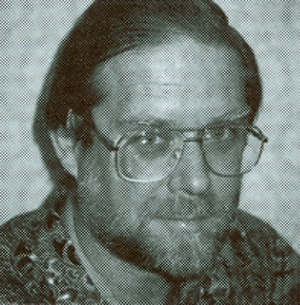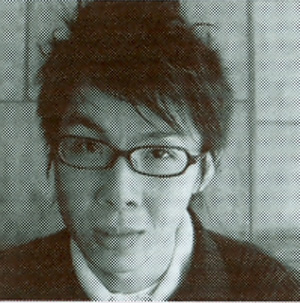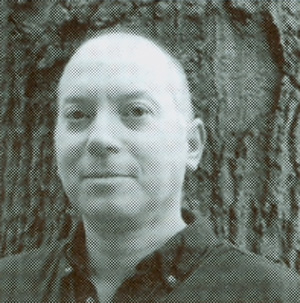 David R. Loy [“What Are You Really Afraid Of?” and “Why We Love War”] reflects on the interface between traditional Buddhist teachings and contemporary issues: “Buddhist insights must inform, and be informed by, what the modern social sciences have discovered about human motivation and interaction. That dialogue is still in its infancy, but it is essential to clarify what Buddhism has to offer at this crucial moment in history. I believe that Buddhism today shouldn’t focus only on personal transformation. Buddhist teachings also have important implications for the way we understand institutions. The world needs its insights, but in a modern vocabulary.”
David R. Loy [“What Are You Really Afraid Of?” and “Why We Love War”] reflects on the interface between traditional Buddhist teachings and contemporary issues: “Buddhist insights must inform, and be informed by, what the modern social sciences have discovered about human motivation and interaction. That dialogue is still in its infancy, but it is essential to clarify what Buddhism has to offer at this crucial moment in history. I believe that Buddhism today shouldn’t focus only on personal transformation. Buddhist teachings also have important implications for the way we understand institutions. The world needs its insights, but in a modern vocabulary.”
 Tri Luu, whose portfolio of monastic life in Southeast Asia appears in this issue, tells us, “The more time I spent in monasteries, the more I became attuned to the inner peace and happiness of the monks and novices, which manifested itself in the simple beauty of their daily lives. Through my photographs, I am able to show their spiritual world by means of the physical world of their everyday environments. I am only a photographer. I am not trying to change the world. I simply want to share the happiness, peace, and knowledge that I have discovered in my ongoing journey.”
Tri Luu, whose portfolio of monastic life in Southeast Asia appears in this issue, tells us, “The more time I spent in monasteries, the more I became attuned to the inner peace and happiness of the monks and novices, which manifested itself in the simple beauty of their daily lives. Through my photographs, I am able to show their spiritual world by means of the physical world of their everyday environments. I am only a photographer. I am not trying to change the world. I simply want to share the happiness, peace, and knowledge that I have discovered in my ongoing journey.”
 Joe Franke [“The Appetite of Birds: The Challenge of Nonkilling,”] remarks, “Through my Buddhist practice and my involvement in the conservation of native biotic communities, I’ve come to realize that there really is no separation between environmental and social concerns. And, just as Buddhist ethics are easily discussed in academic terms but far more difficult to practice, it’s easy to talk about the illusory separation between one another and the entirety of the biosphere, but it’s far more difficult to live by that realization.”
Joe Franke [“The Appetite of Birds: The Challenge of Nonkilling,”] remarks, “Through my Buddhist practice and my involvement in the conservation of native biotic communities, I’ve come to realize that there really is no separation between environmental and social concerns. And, just as Buddhist ethics are easily discussed in academic terms but far more difficult to practice, it’s easy to talk about the illusory separation between one another and the entirety of the biosphere, but it’s far more difficult to live by that realization.”

Sandra Weinberg’s essay on food, craving, and compulsive behavior is also featured. She comments, “This article grew out of my profound appreciation of the Buddha’s understanding of the addictive process. Addiction has been a leitmotif in my life—first personally and now professionally. It has been, with all its pain and suffering, a merciful teacher. Dealing with my own addictions led me to meditation and to the Buddha’s teachings. The dharma remains an ever-deepening guide to understanding the step-by-step process of the grip of attachment or addiction as well as the path to a sense of freedom. Sometimes I find myself thinking of the Buddha as the first addictions counselor!”
Thank you for subscribing to Tricycle! As a nonprofit, we depend on readers like you to keep Buddhist teachings and practices widely available.